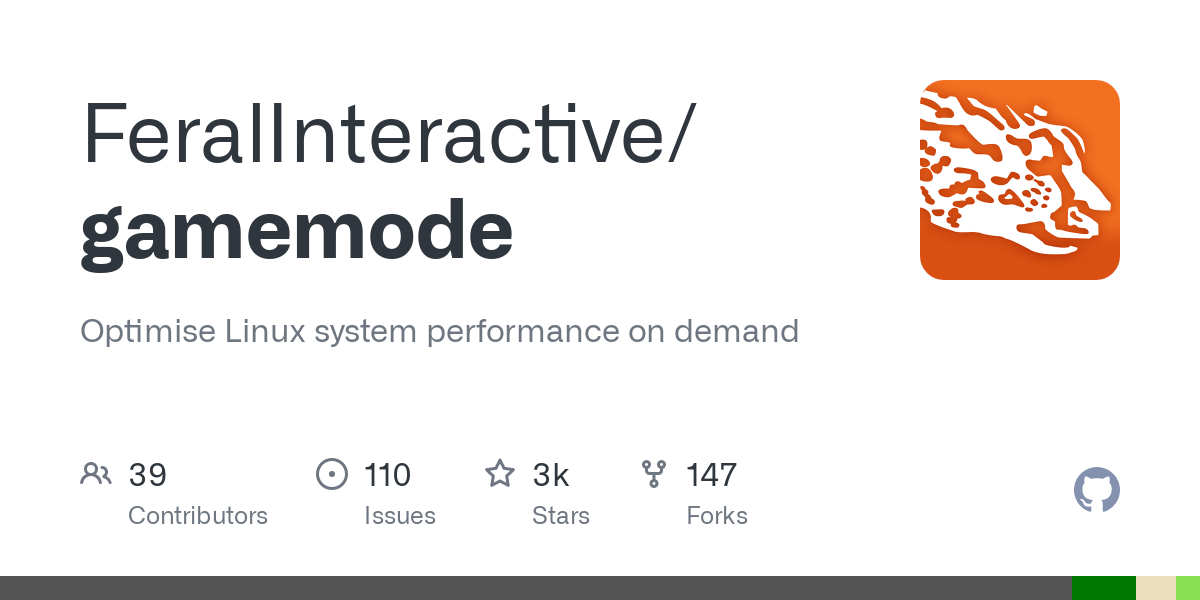cross-posted from: https://lemmy.ml/post/167516
I used
gamemodebecause it seemed like a nice performance tool; however it caused performance, stability, and issues (in TeamF2). In TF2, I had irregular frame rates and frame times.I decided to disable
gamemodeto see what would happen; because it’s a good idea to test every known factor. I got a consistent frame rate of 60fps and consistent frametime of 16.67ms.
GameMode is a daemon/lib combo for Linux that allows games to request a set of optimisations be temporarily applied to the host OS and/or a game process.
GameMode was designed primarily as a stop-gap solution to problems with the Intel and AMD CPU powersave or ondemand governors, but is now host to a range of optimisation features and configurations.
Currently GameMode includes support for optimisations including:
- CPU governor
- I/O priority
- Process niceness
- Kernel scheduler (
SCHED_ISO)- Screensaver inhibiting
- GPU performance mode (NVIDIA and AMD),
- GPU overclocking (NVIDIA)
- Custom scripts
Constantly changing the behavior of the CPU and priorities can be very bad for stability.
I think games should focus on optimizing their code, instead of relying on third party software.
Game boosters are known to be snake oil; FOSS game boosters are not an exception.
I think games should focus on optimizing their code, instead of relying on third party software.
Unless a game takes a hit in sales, developers have no incentive to optimize their game for performance. The chip shortages are causing gamers to stick with their older GPUs so maybe that might affect things.
You have a good point.



